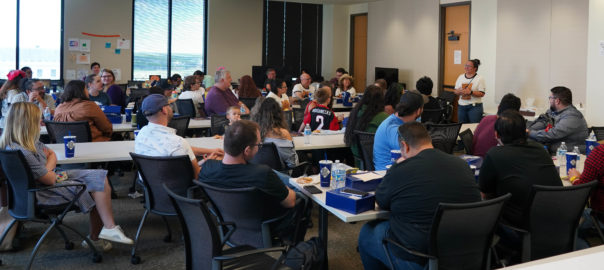Introduction
The first Critical Creative Consortium was hosted last Fall at the University of Texas at Austin by the Latinx Pop Lab. This year, Texas A&M’s Media & Gaming Lab students, along with A&M Professors Regina Mills, joey lopez and Jonathan Guajardo, hosted the Critical Creative Consortium. Our official sponsors were:
- University of Texas at Austin – Latinx Pop Lab
- Texas A&M Data Science Institute
- Texas A&M Race, Ethnicity Studies Institute
- Texas A&M Department of English
- Texas A&M Department of Communication & Journalism
- Rice University Humanities Research Center
With this support, we were able to host over 70 in-person attendees & over 105 participants overall, including online attendees. We had six tracks of panels and workshops, so we could appeal to the participants’ varied interests. We also had an open break area where lunch and various activities were held throughout the day.
I, joey lopez phd, have to say, this day was beyond amazing! Friendships were made, bonds were created, and people from all over Texas and the nation were able to share their enthusiasm for Latinx representations in popular culture. We are including a podcast with this blog post so you can hear some perspectives directly from some of the organizers and attendees.
Media & Gaming Lab Reflection Podcast
Tracks:
Below are write ups by the organizers of the tracks. The tracks were:
- Comics
- Videos Games
- LGBTQ+ & Arts
- Popular Culture
- Journalism
- New Media
Comics-
Anthony Ramirez’s Reflection
This year, the Latinx Critical Creative Consortium was held at Texas A&M University, my alma mater. This is my first conference as a professor, and since I’ve left Texas A&M. This was a great and amazing experience, and an experience that I have never felt at the university itself. I was able to co-lead the comic books track with my friend and colleague, Samantha Ceballos. Through this track, we had a presentation, panel, discussion, and two workshops. During each of our comic centered presentations, we encouraged creativity, critical thinking, and collaboration. Additionally, we described how passion leads to various opportunities. On top of all of that, we describe how there is power in storytelling. Not just in reading and analyzing stories, but telling stories. These were some conversations that were had during our presentations and workshops. Through our presentations, it was great to hear how others study and examine comics, and how people now want to use comic books within their research.
While I am proud of the work and the effort made by the organizers and I, one thing I personally wished that was different was less presentation and that way other organizers can venture out and support other presentations. I wish I could have supported others and viewed some presentations that fall into my interests. That was something I hope that can be learned from this conference.
I hope this conference continues to grow and expand as it did this year. With conferences like this, it brings members of Latinx communities from different disciplines and walks of life. It is not your typical academic conference. I have been able to network and meet some wonderful people who have become some of my closest friends. I’m grateful for this conference and the opportunity to help contribute to build this community further.
Samantha Ceballos Reflections
As a graduate student, it was amazing to be a part of this conference. I was lucky enough to help host the first LCCC in 2021 at The University of Texas at Austin with Dr. Aldama. Dr. Lopez and Dr. Mills really took the conference to a new level! It is always refreshing to be in a room full of people who create and do such amazing things. I left the weekend feeling inspired and filled with hope. Working with my colleague, mentor, and friend, Dr. Ramirez is always a fun time. His expertise and professionalism are wonderful, and I always learn so much. The panels and workshops we ran were helpful, informative, and a great way to network with different students from different universities. I loved hearing about other people’s works and their process of creation. The workshops reminded me of the importance of amplifying voices and narratives and the importance of creating spaces where people can create and share without judgment. We should be building people up, not tearing them down, and this conference really helped build. We need to continue fostering spaces like these, especially in academia. Echoing Dr. Ramirez, I also hope that the LCCC continues to grow and change as time goes on. Latinx CCC 2023 needs to hurry up!
Video Games-
The Video Games track had a mix of sessions focused on teaching games (taught by Carlos Kelly [co-lead] and me), creating games for those reticent to try (a Twine workshop led by me), and panels that brought in a variety of people in different areas of the gaming industry and game studies. I want to take the opportunity to elaborate a bit on these panels because while I have published elsewhere on teaching games in the classroom, I felt like these two panels provided me lots of aha! moments.
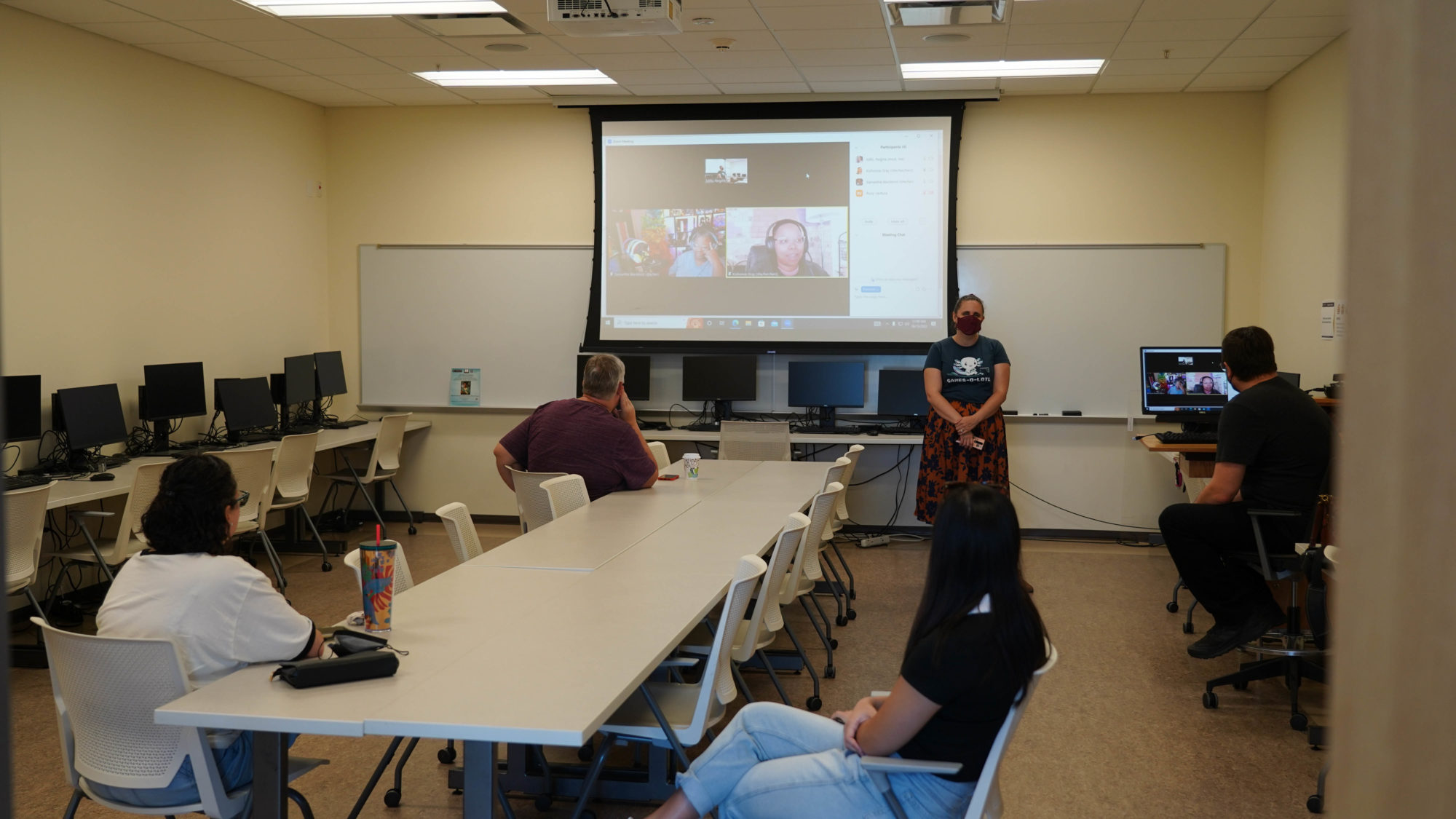
The day’s second session, on Black and POC streamers, was anchored by Sam Blackmon (Not Your Mama’s Gamer and prof at Purdue) and Kishonna L. Gray (prof at U of Kentucky). I honestly felt like I learned sooo much from these two! Sam talked about how she’d been streaming before streaming was a thing (1999!). Both reflected how platforms like Twitch and their algorithms prioritize stereotypes of blackness and non-Black streamers in ways that undercut the common idea that streamers who work hard enough and build their base can succeed. Blackmon and Gray were incredibly engaging speakers and considering how little I know about streaming, it made me very interested in learning more! (Blackmon also let us know that there is a special issue of Not Your Mama’s Gamer (NYMG) on MMOs). I am not a huge podcast listener but I definitely also suggest listening to the NYMG podcast.
Our last session was a Q&A session with people in the game industry. What I found from both our first panel with Sam and Kishonna but also this last panel was that what it means to “be in” gaming or “study” games is so wide-ranging! We started with a pre-recorded video from the Director of Global Localization at Riot Games, Denisse Kreeger, who talked about how much things have changed but also how much still needs to be done, and mentioned her own struggles being a Latina lesbian in the games industry. Then, Cj Peters of Konsole Kingz talked about his pathway to working in games, both in creating games, creating the icons that people use for this avatars in XBox Live, and creating connections between games and the hip-hop industry. Hadeel Ramadan (a prof here at TAMU) blew my mind with the work she was doing in educational games. She even talked about how they made a game for birds to help them destress in captivity! (really!). Lastly, we had Jakejame Lugo, who talked about his current work of content creation and experience as a gaming journalist. He and Cj gave helpful answers about what draws them to new creators (that the creator emanates a genuine-ness rather than a fake persona and makes the kind of content they enjoy rather than trying to stick to trends). I really appreciated that they all had really different takes based on their respective backgrounds and all had thoughtful conceptions of what they hope the future of the game industry will hold.
Regina Mills Reflections – My Takeaways:
Doing this track made me realize that I have some incredible colleagues here at TAMU. I was so glad to see several of my students attend (and though the extra credit brought them, I think the content made some of them stay longer than anticipated). I also think offering this free of charge was so important because our knowledge and experience, especially based at a public institution, should be shared. I loved the opportunity to meet new faces and also lift up the voices and work of old ones.
I do wish I could have been part of the other tracks, but I couldn’t leave my sessions for more than a few minutes at a time (especially since I was the presenter for two of them). I also wish that I hadn’t been so slammed with grading and other things pulling me in multiple directions that I didn’t advertise as well as I could have. I especially wish that I could have gotten more attendance from English and LMAS faculty and students, though I know many of us are very busy juggling a lot of balls, especially as we continue to live in pandemic conditions. Lastly, I was incredibly exhausted after this work (the last half of the day I struggled with an intense migraine). So for next year, maybe we should consider a less is more approach. Having perhaps only two sessions for each track, with time provided so that track leaders can attend other sessions, would go a long way towards having more robust attendance across the board for each session and allow us all to see and celebrate the work being done.
Even with these reflections on how to improve for the 3rd Annual LCCC, I’m so proud of what was accomplished and thankful for the work that Joey Lopez, Frederick Luis Aldama, Hector Garza, Sam Ceballos, and many others did to make this year’s LCCC. Also, thanks to ENGL graduate students Alondra Ceballos, Joseline Gonzalez-Ajanel, and Anneke Snyder for doing the thankless work of opening the doors for attendees (since on Saturday, the LAAH doors can’t be opened without a key card). Thank you also for my UPREP assistant on my Gaming Latinidad project, Caroline Shee for attending sessions, asking great questions, and also helping keep the doors open for folks.
LGBTQ+ & Arts
The LGBTQ+ & Arts track was amazing. Hosted by Hector Garza the track featured workshops that engaged the attendees with thinking about the agency of art in academia and popular culture. How our lived realities when seen through popular culture has an artistic intermodal art impact. The results of the workshops was inspiring and great. Attendees shared their lived realities in a platica setting where not only discussion took place, but art making. Here are some pictures from sessions:
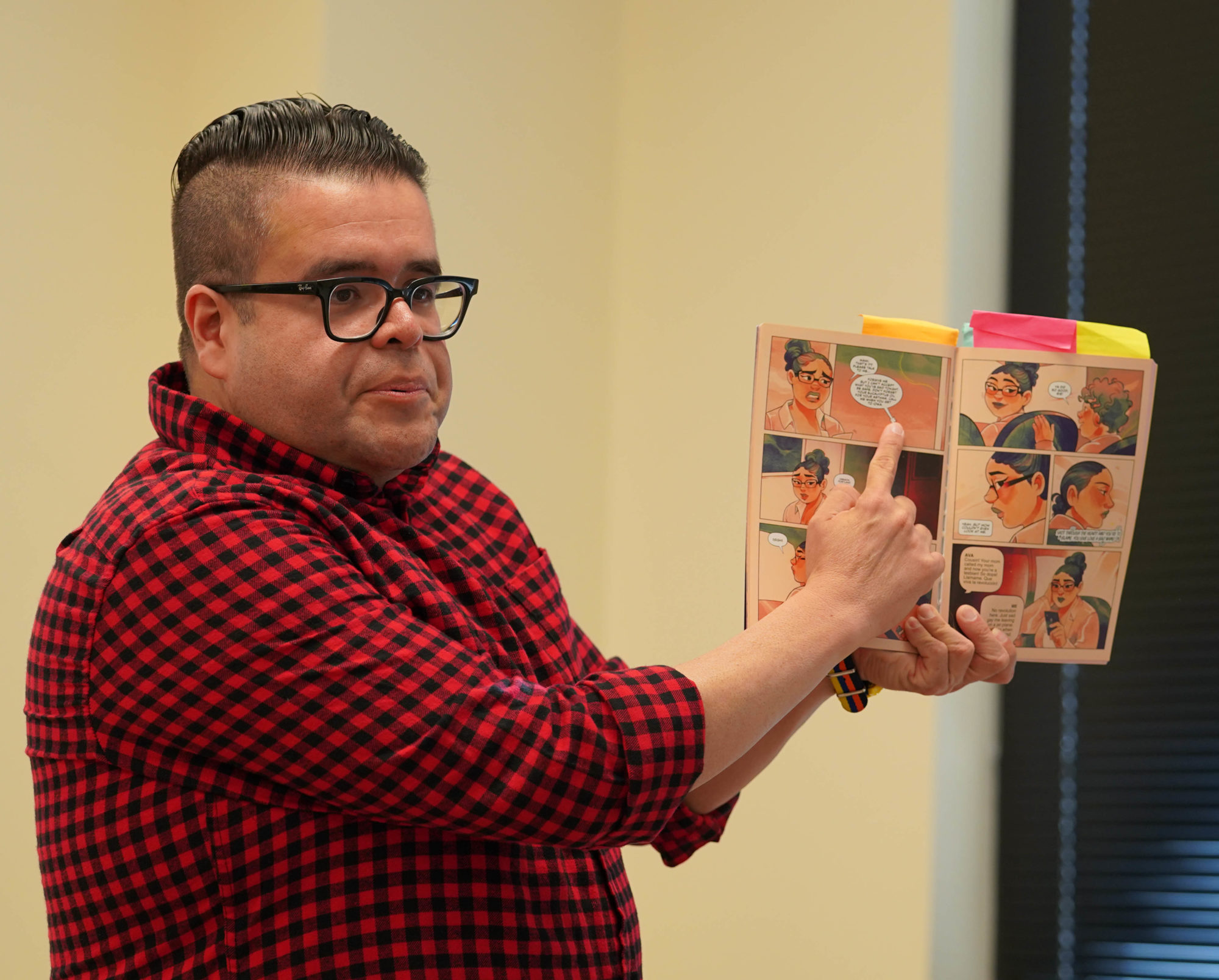
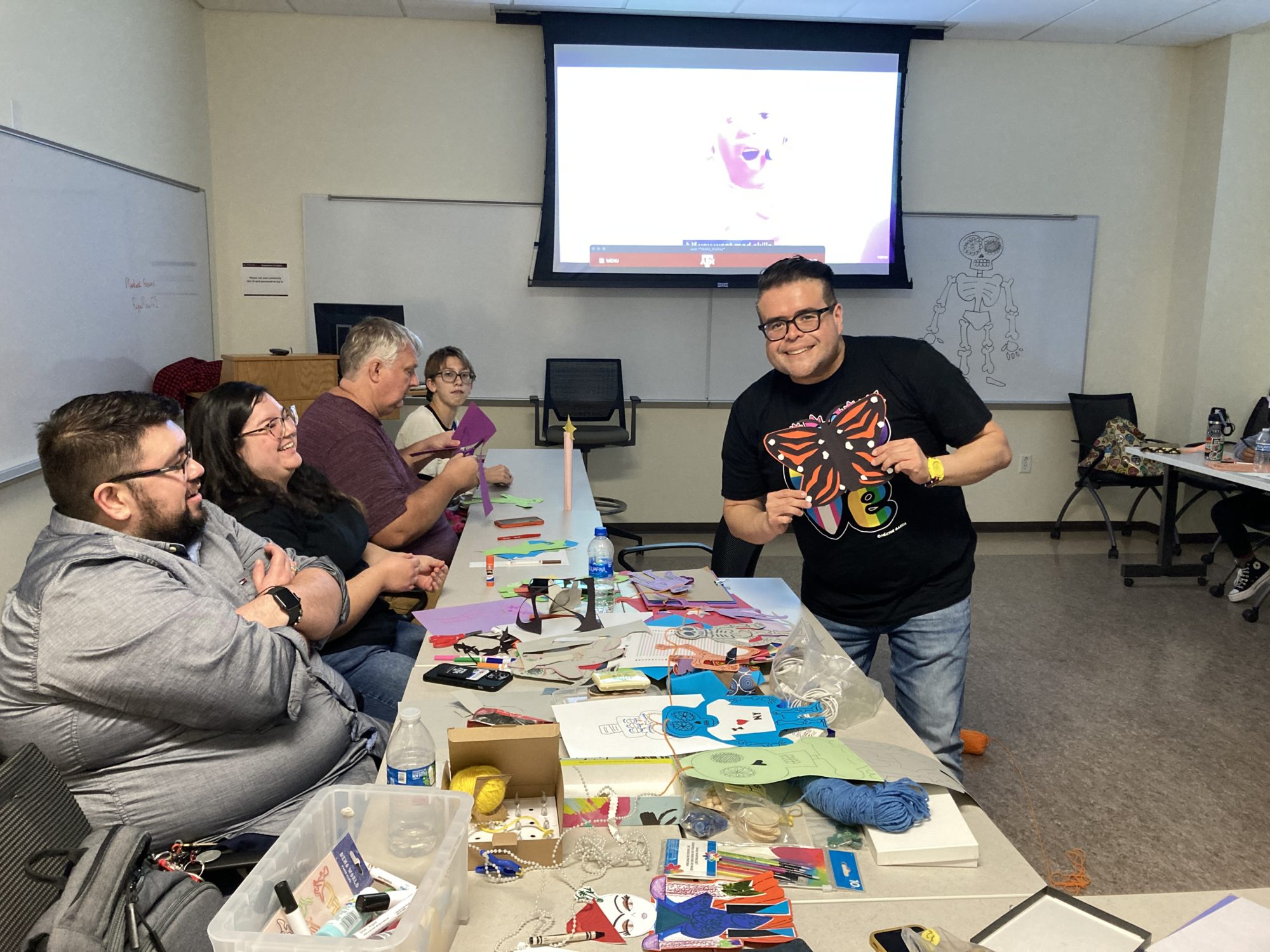
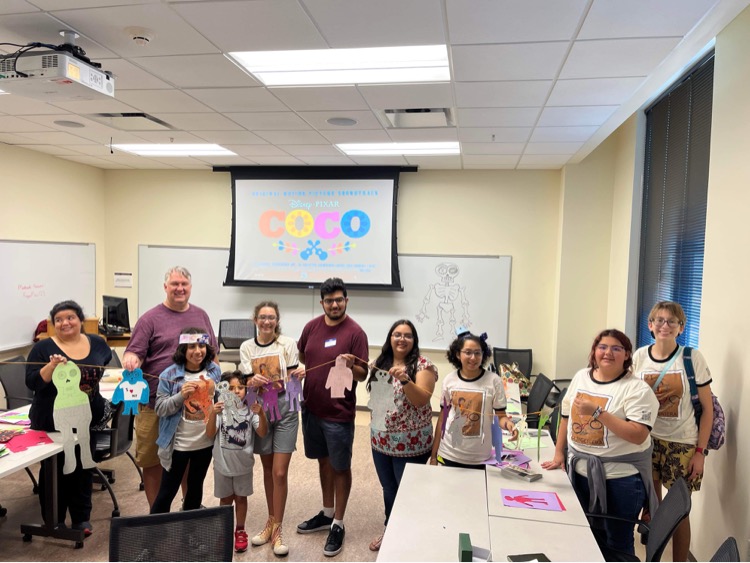
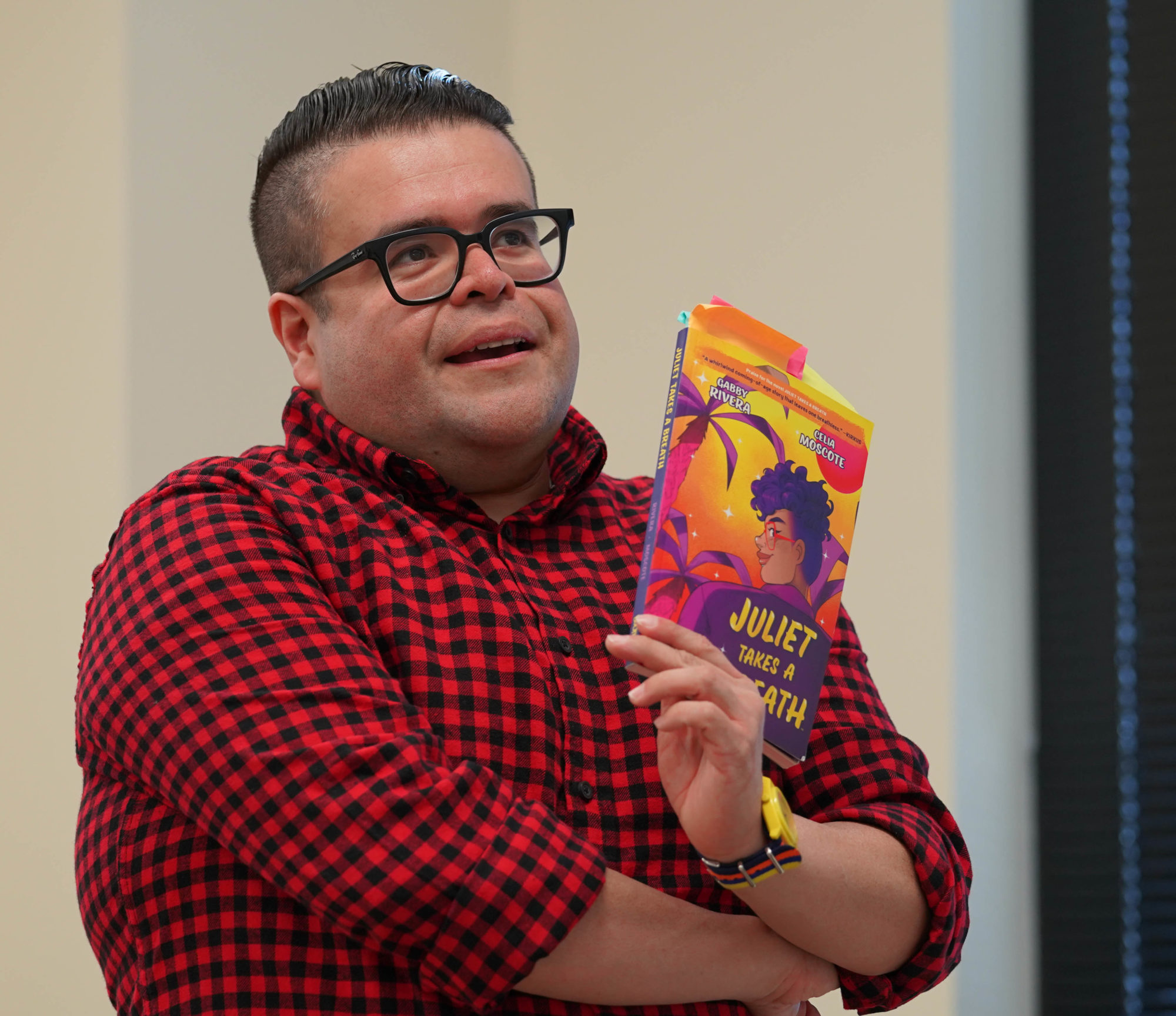
Popular Culture
The popular culture track was hosted by Fredrick Luis Aldama and Christopher González. The track consisted of presentations on Expressive Hip Hop Sampling in Into the Spider-Verse & Our Mxnhoods to professional development and publishing to Approaches to Comics of the Hemispheric Americas. The results was a reciprocal engaging environment where discussions went deep. Practical knowledge also ran deep durning the professional devleopment and publishing session by Fredrick Luis Aldama and Christopher gonzáles. Here are some pictures:
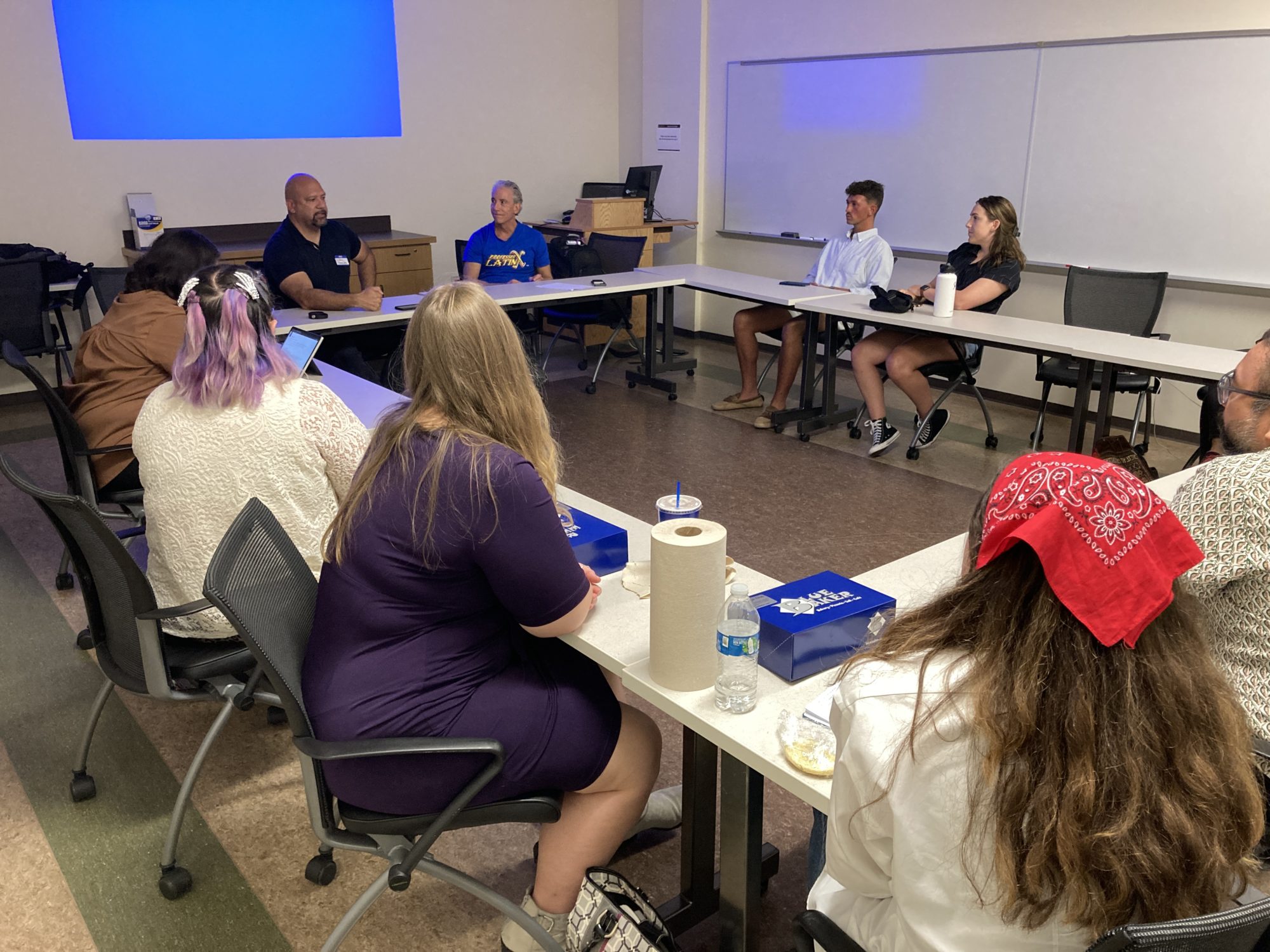
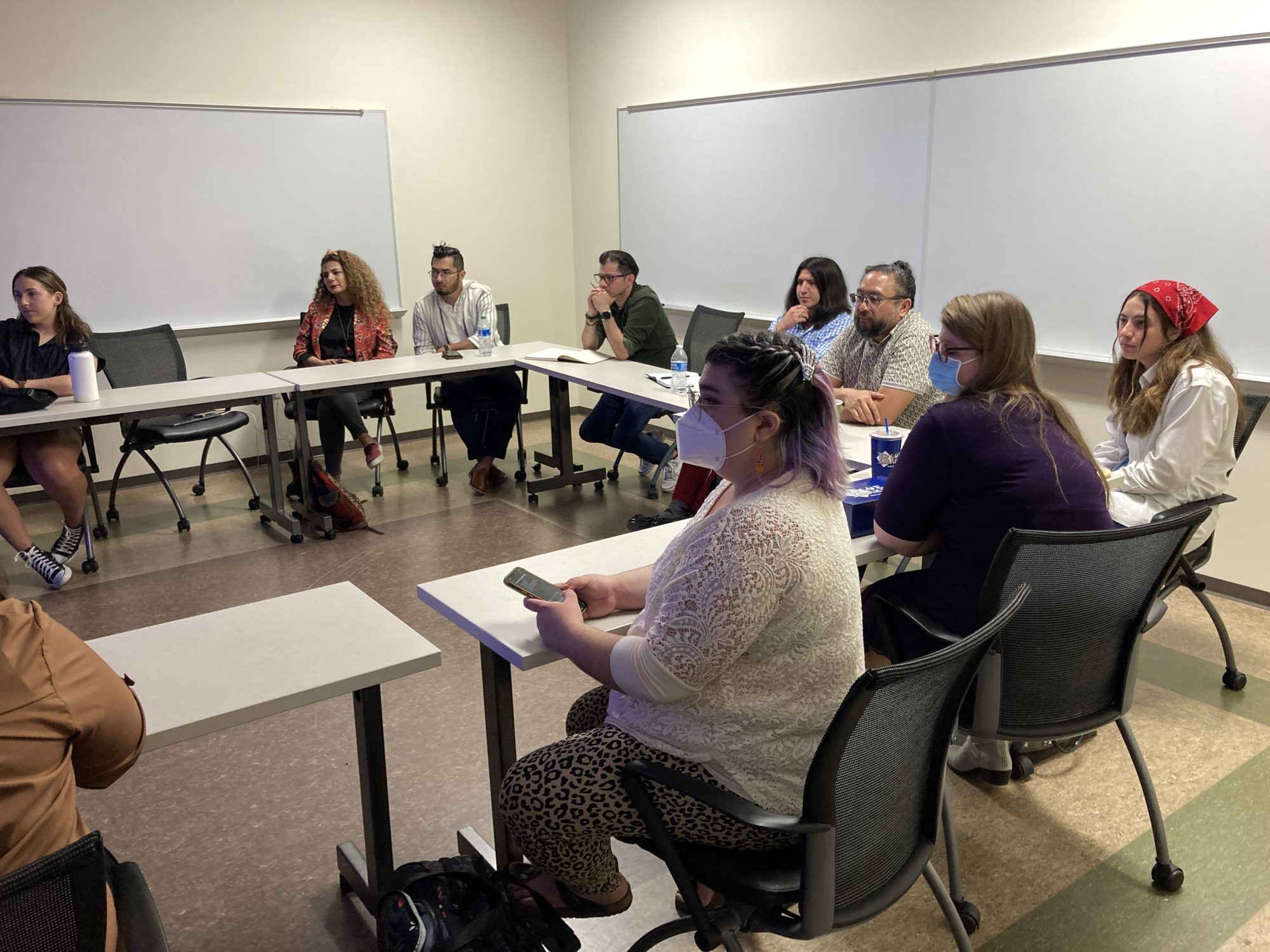
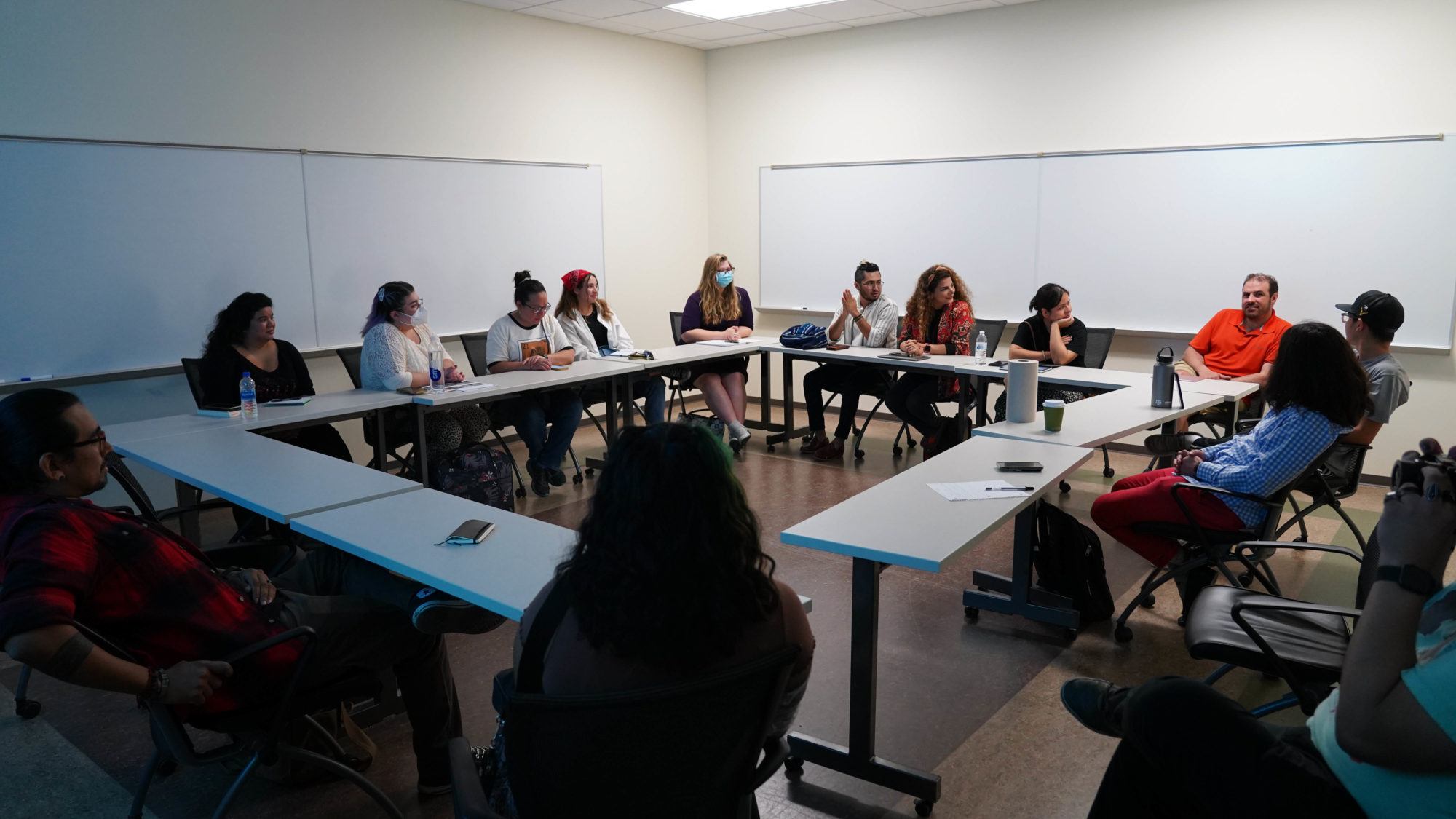
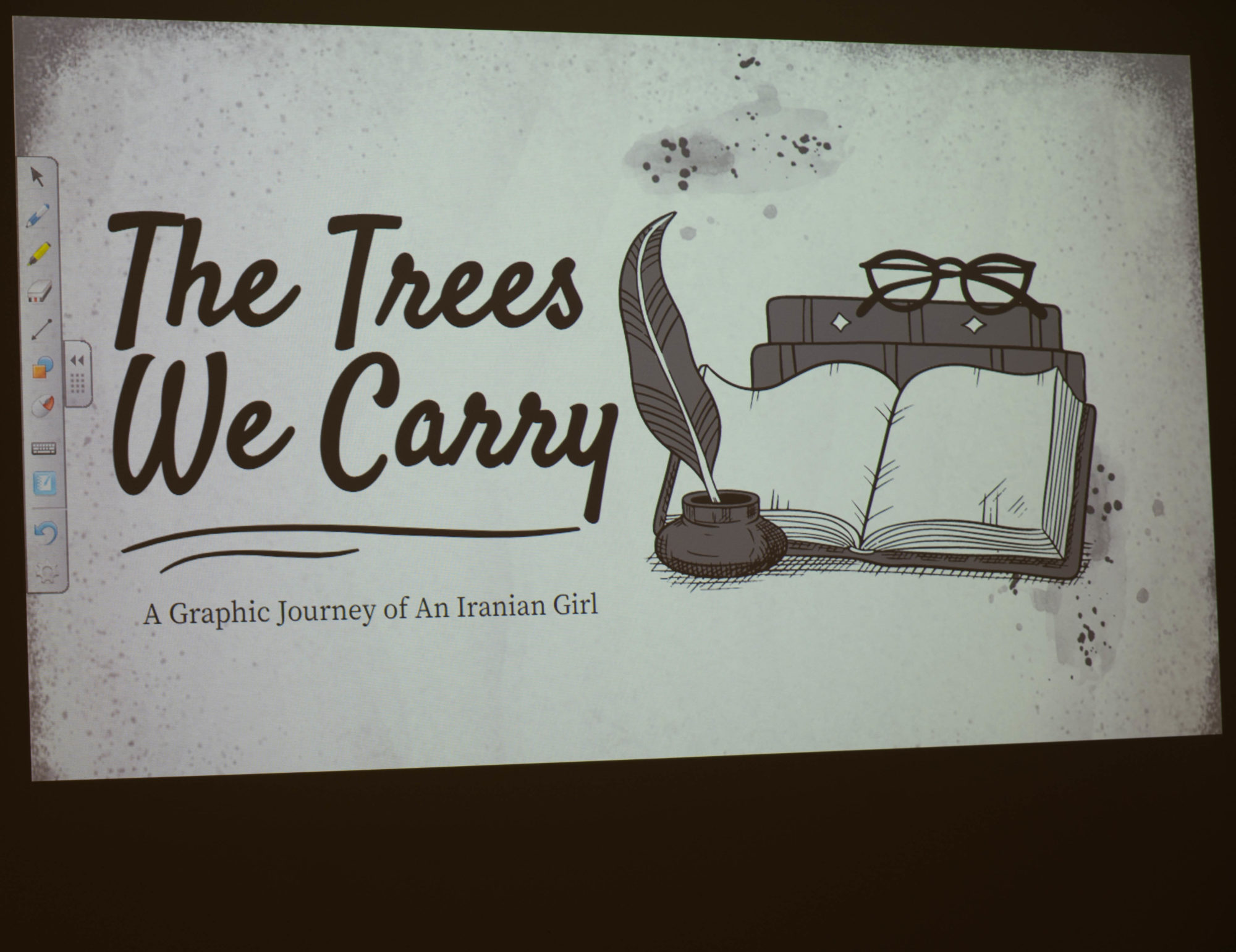
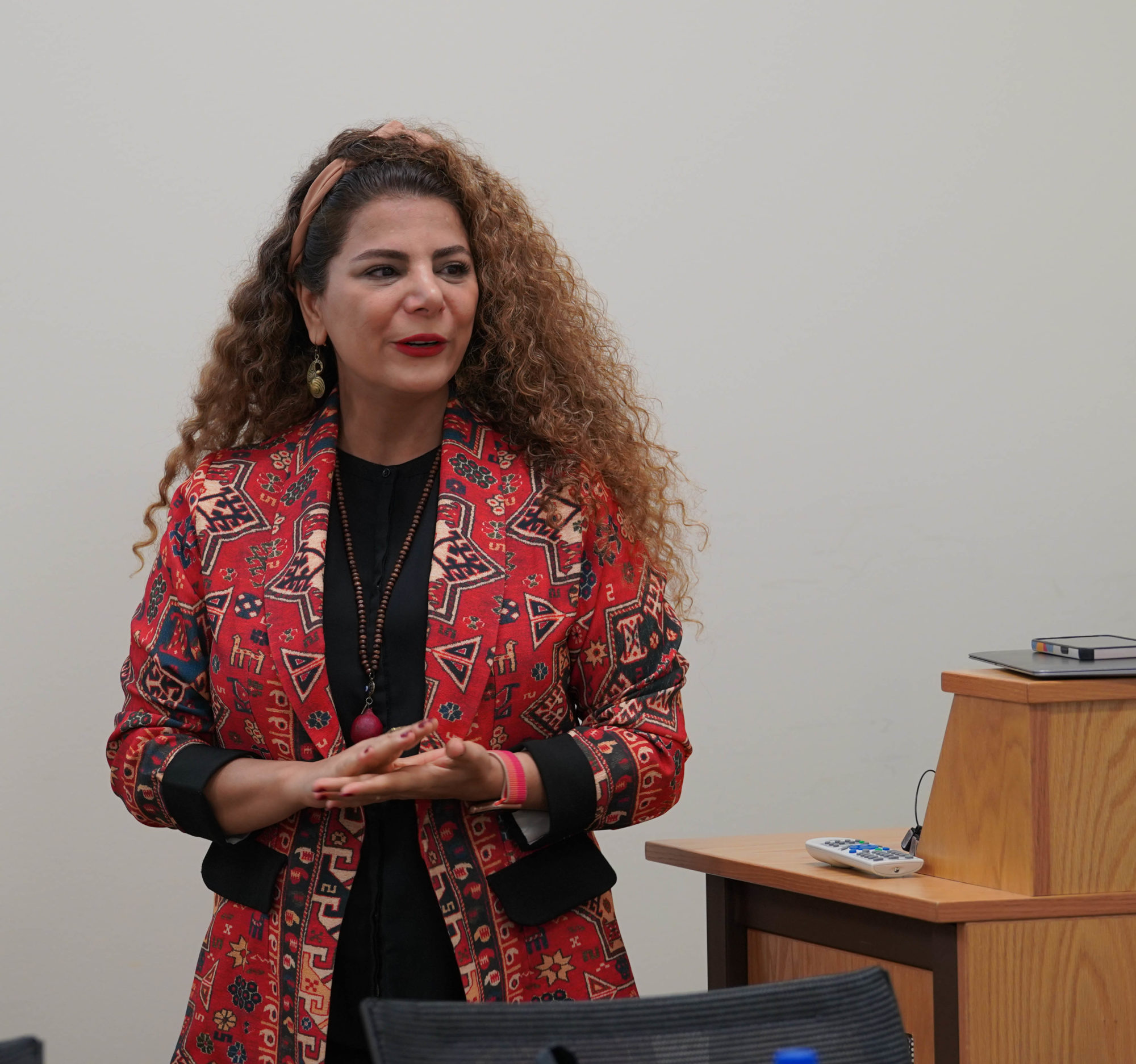
Journalism
The Journalism track was hosted by Jonathan Guajardo and included some great sessions. Dr. Elena Foulis and her class from Texas A&M San Antonio worked with joey lopez early on to develop an engaged zoom sessions where her shared their works and the attendees at the conference and on zoom engaged with their presentations and dialoged about their process and work. Luis Vasquez from the San Antonio Express News and Rebbeca Macias gave a session on what it is like to be in charge of new media in a traditional media setting and the successes and challenges of integrating platforms like TikTok, not just as a medium, but in terms of metrics and financial opportunities. International freelance producer Kaye Cruz presented on “Journalism in the 21st Century, Latin X a past and current time of media presenting a moment in time to a micro audience.” His talk was well received and very engaging. Here are some pics:
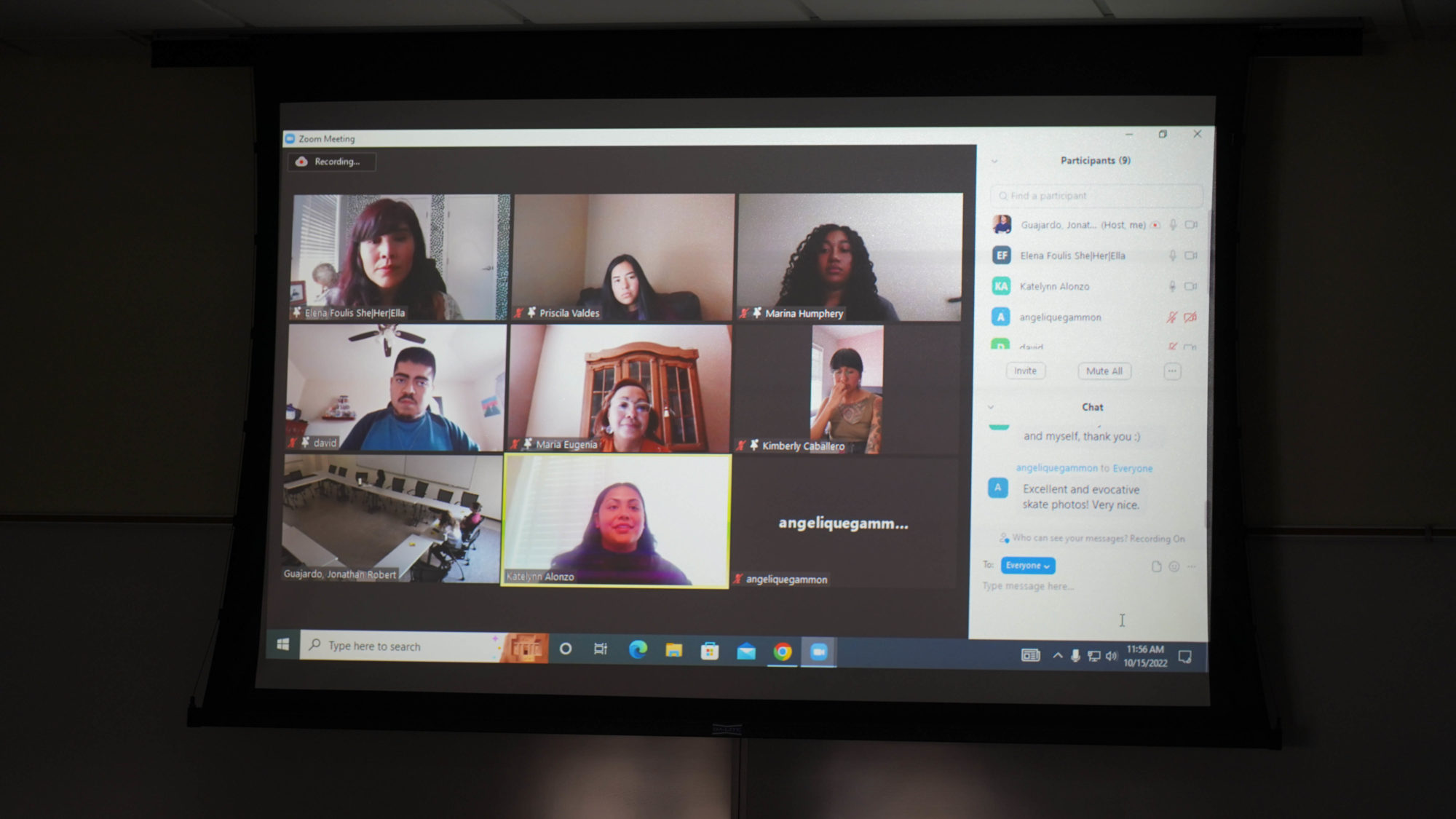
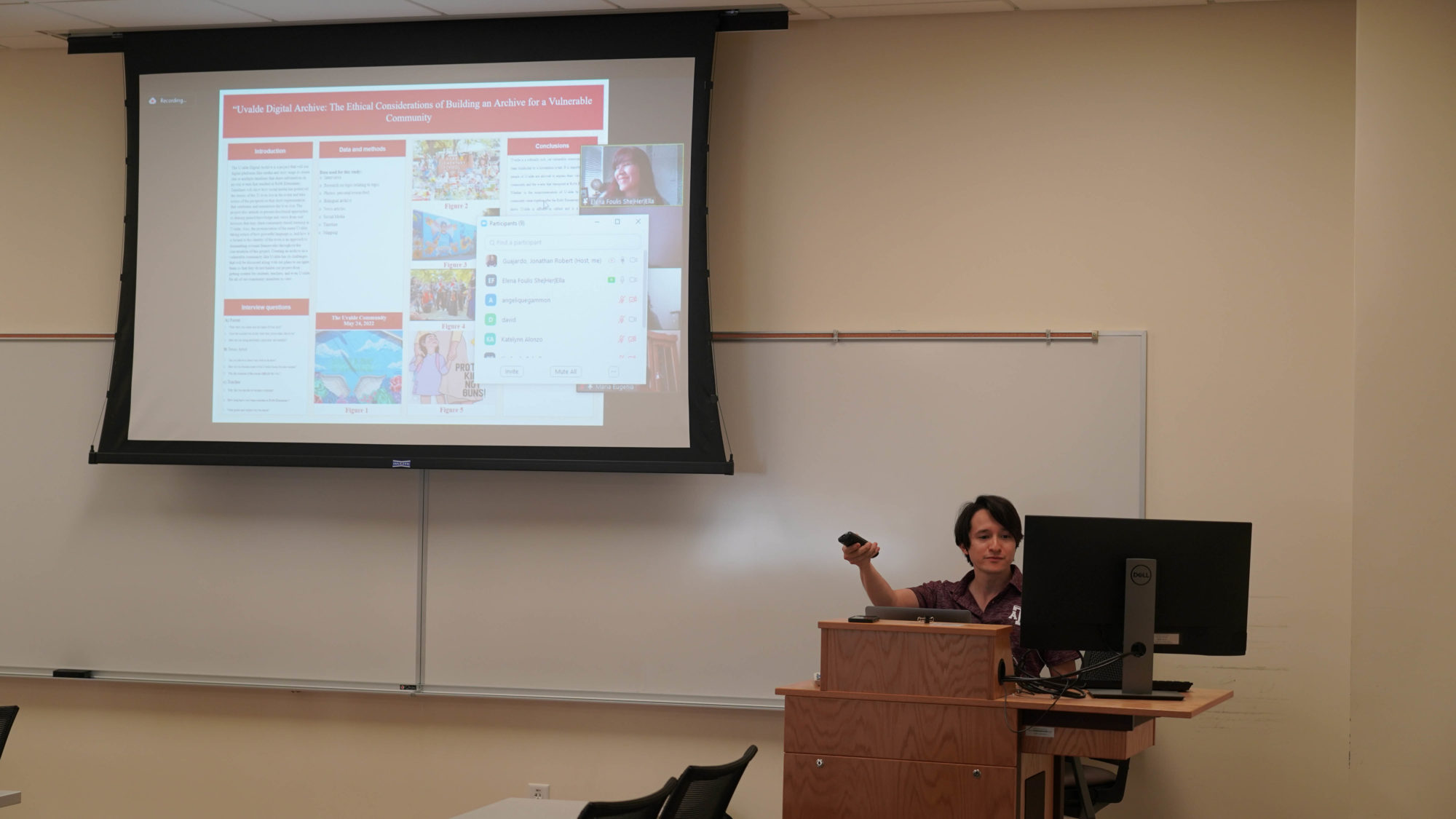
New Media
The new media track included a slew of presentations that went deep into the current trends in new media, from media production to artificial intelligence art. Students from the Texas A&M Media & Gaming Lab held a panel about media making in the 21st century and students showed off their projects. Mark Solis, John Frazee and Issac Jimenez gave a presentation about Marketing in central Texas, specifically discussing the lead generation to customer follow up process. After the presentation an undergraduate from A&M told professor joey it was an amazing presentation which was great to hear.
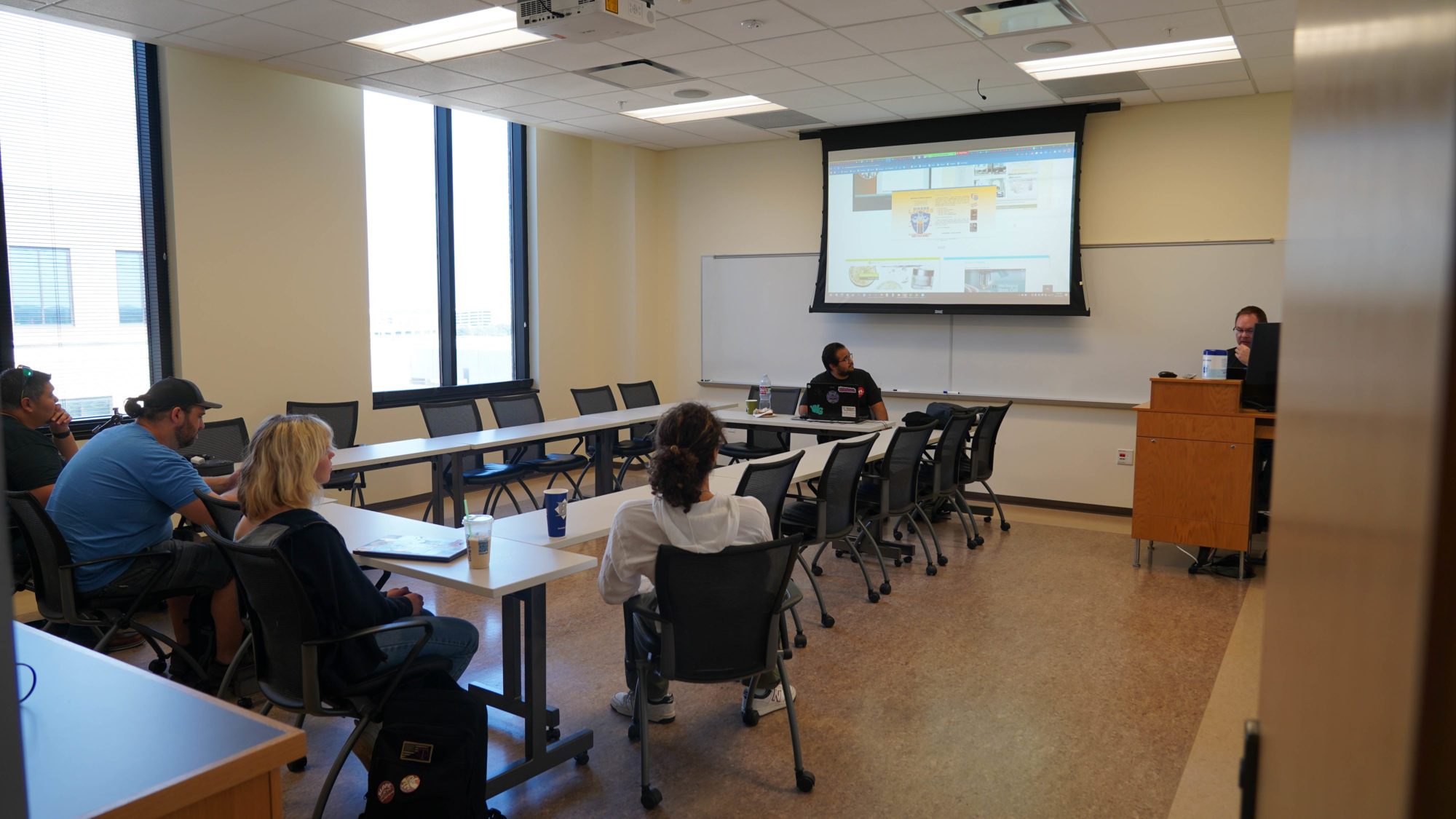
In the afternoon the Texas A&M Media & Gaming Lab students held a workshop on media making in the 21st century where they guided attendees through interviewing and media production. It was great seeing their ability to put production skills directly into the hands of attendees. Lastly Mark Solis, John Frazee and Issac Jimenez gave a workshop on Artificial Intelligence Art making, giving a full overview of the AI tools currently being used to generate both graphics and video.
Media & Gaming Lab
The Communication & Journalism department’s Media & Gaming Lab participated in two panel sessions. The first session was moderated by Rick Pulos, a second-year doctoral student and included attendees from the faculty at A&M as well as students. Active members of the Media & Gaming lab introduced themselves and talked about what the lab has meant to them as a student at A&M. Most of them have been heavily influenced and inspired by Dr. Joey Lopez and faculty member Johnny Guajardo. They also discussed the importance of the lab as a place where they feel a strong sense of community and where they have the ability to explore their creative passions and express themselves outside of the pressures of coursework. They also discussed their various creative passions. Graduate student Nathaniel Carr talked about graphic design and shared some of his work. Rhett Brady, a senior Journalism major, talked about news articles he has researched and written during his time at A&M. Senior Telecommunication media studies major Kali Johnson talked about her passion for filmmaking and her hope to work in entertainment law. Sophie Villarreal, a sophomore in COMM, talked about how Dr. Lopez and Professor Guajardo led her to become a prolific media content creator. Zayno Rayne, a student in the Texas A&M School of Public Health, talked about his passion for music production and his recent experience as a videographer for the band Small Talk, an opportunity that came about from the lab’s extensive network to creative artists all over Texas and the United States. Listening to students talk was a reminder of the importance and impact of the Media & Gaming Lab.
The Media & Gaming Lab also conducted a workshop session. Rick Pulos and student Sophie Villarreal represented the lab. Rick briefly discussed the transformation from analog to digital that occurred between the late 1990s and the 2000s. He showed attendees 16mm film and super 8 film and the various media types that popped up in that time frame like Hi-8 video and MiniDV. After this, Sophie took over the workshop and conducted a highly engaging experience for us all. She led a lively session on Citizen Journalism with A&M students from the department’s Popular Culture course. Sophie started off by sharing the work that she does. She used her website from her company Revolve Media (https://www.sophievillarreal.com) to introduce students to her media works. Sophie is a media content creator who does photography, podcasting, videography, and journalism that is in conversation with all sorts of folks. For example, she often goes to local spots like coffee shops and asks people if they would be willing to talk to her for her podcast. She then pivoted to an open dialogue with students about what they think citizen journalism is. This led to a discussion that produced three questions for interviews. For example, one question was, “Do you prefer new Taylor Swift or old Taylor Swift and why?” Sophie then got everyone on their feet and introduced lapel microphones to the group and demonstrated how to conduct a short interview with the technology using her cell phone. From there, the group headed out into the building and asked several people if they would be willing to be interviewed. Sophie had the workshop attendees take turns conducting the interviews. When we returned to the workshop classroom, Sophie taught the group how to best edit interviews including what software to use and how to build a strong structure based on the captured raw footage. The workshop was a massive hit and Sophie’s ability to teach her peers was, without question, powerful.
Open Area Recaps
Screen Printing & Art Area
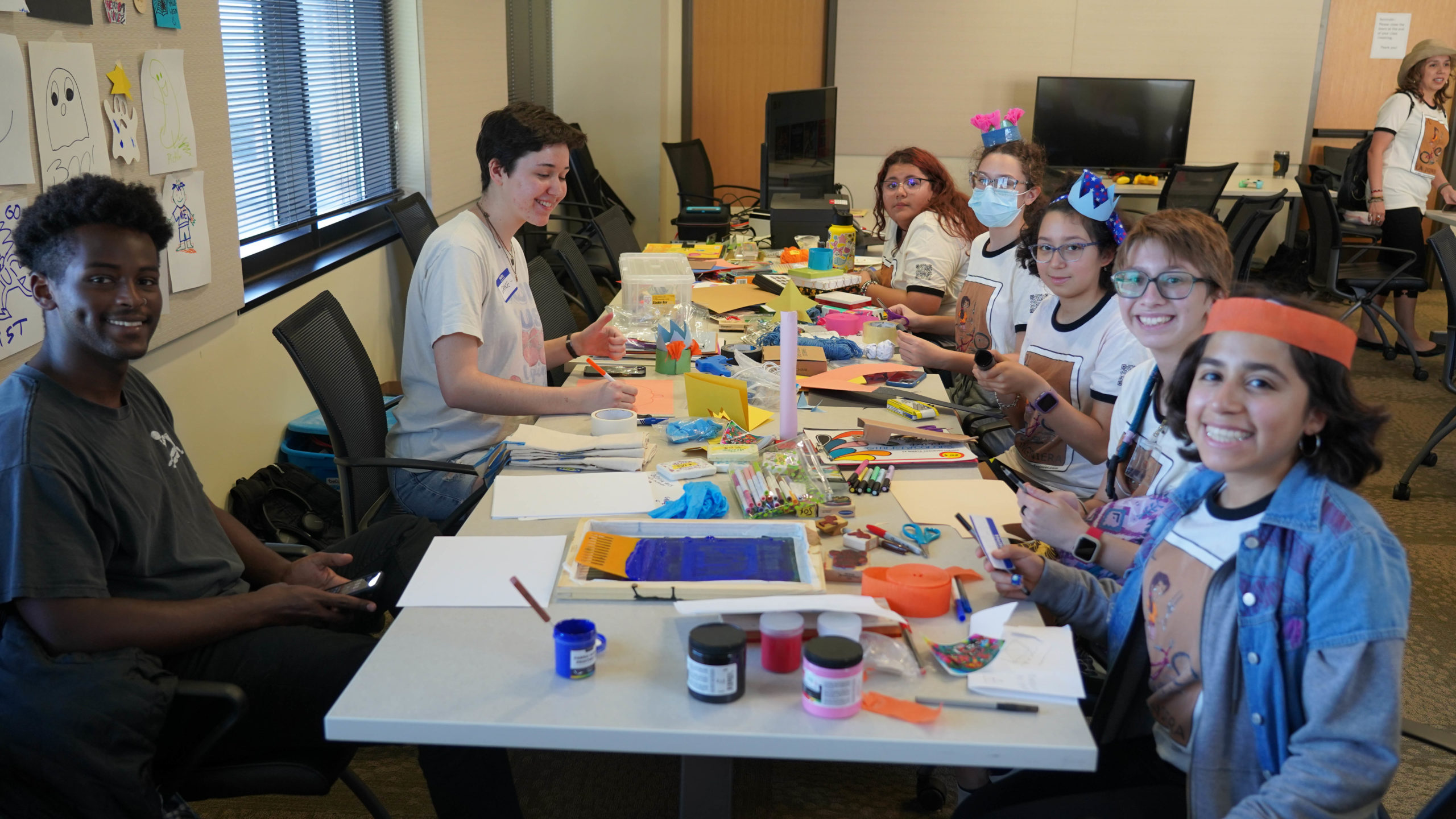
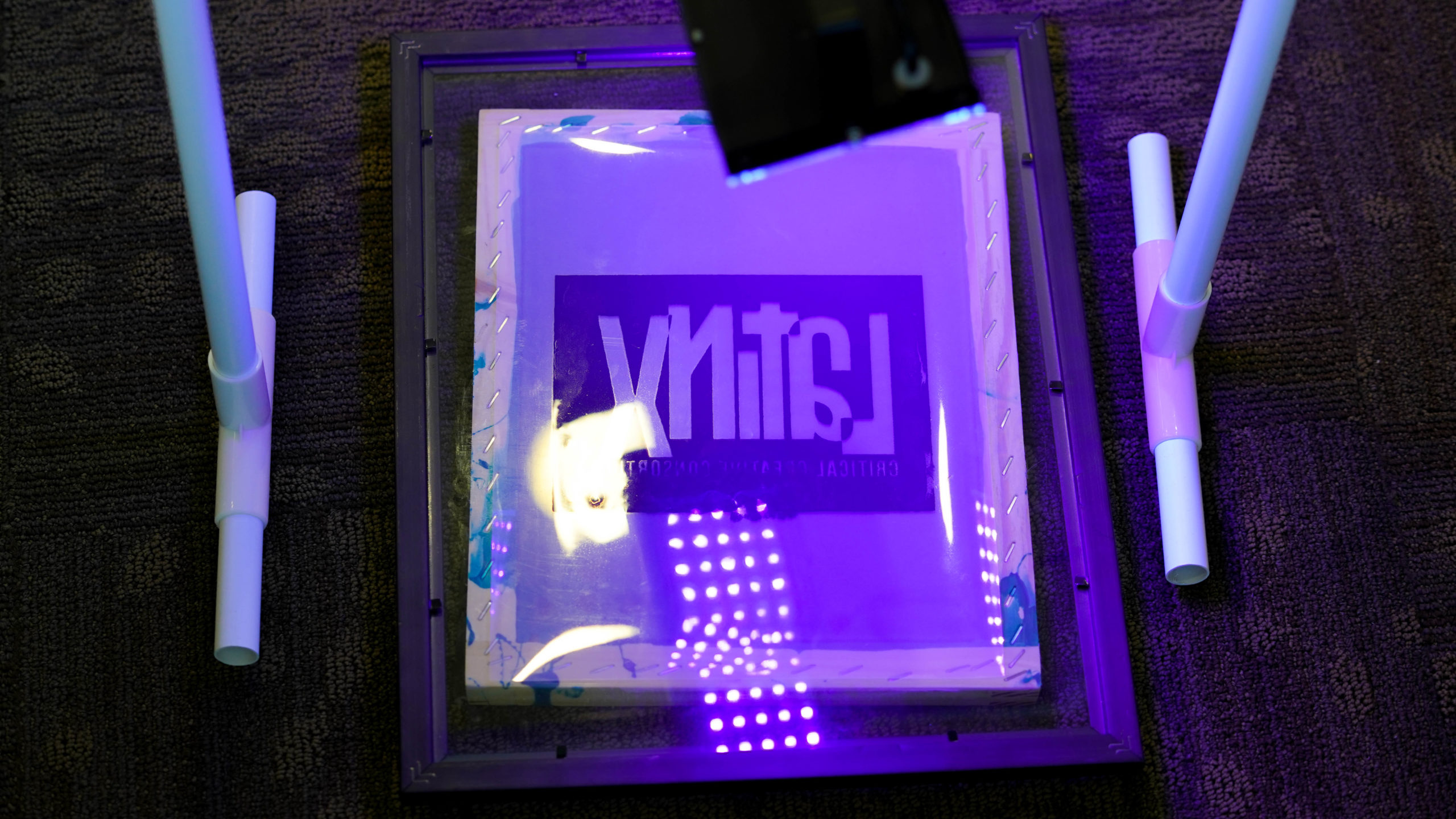
The Screen printing area was a hit! Grace, an undergraduate student, managed the space and was responsible for making the Latinx screen and other screens that we used for printing throughout the day. So many people got to make screen prints on card stock, shirts, and canvas bags. People also did some collaging and pop art work. Overall the area maintained a nice laid back feel. Lots of good conversation and laughs came from it.
Dungeons & Dragons
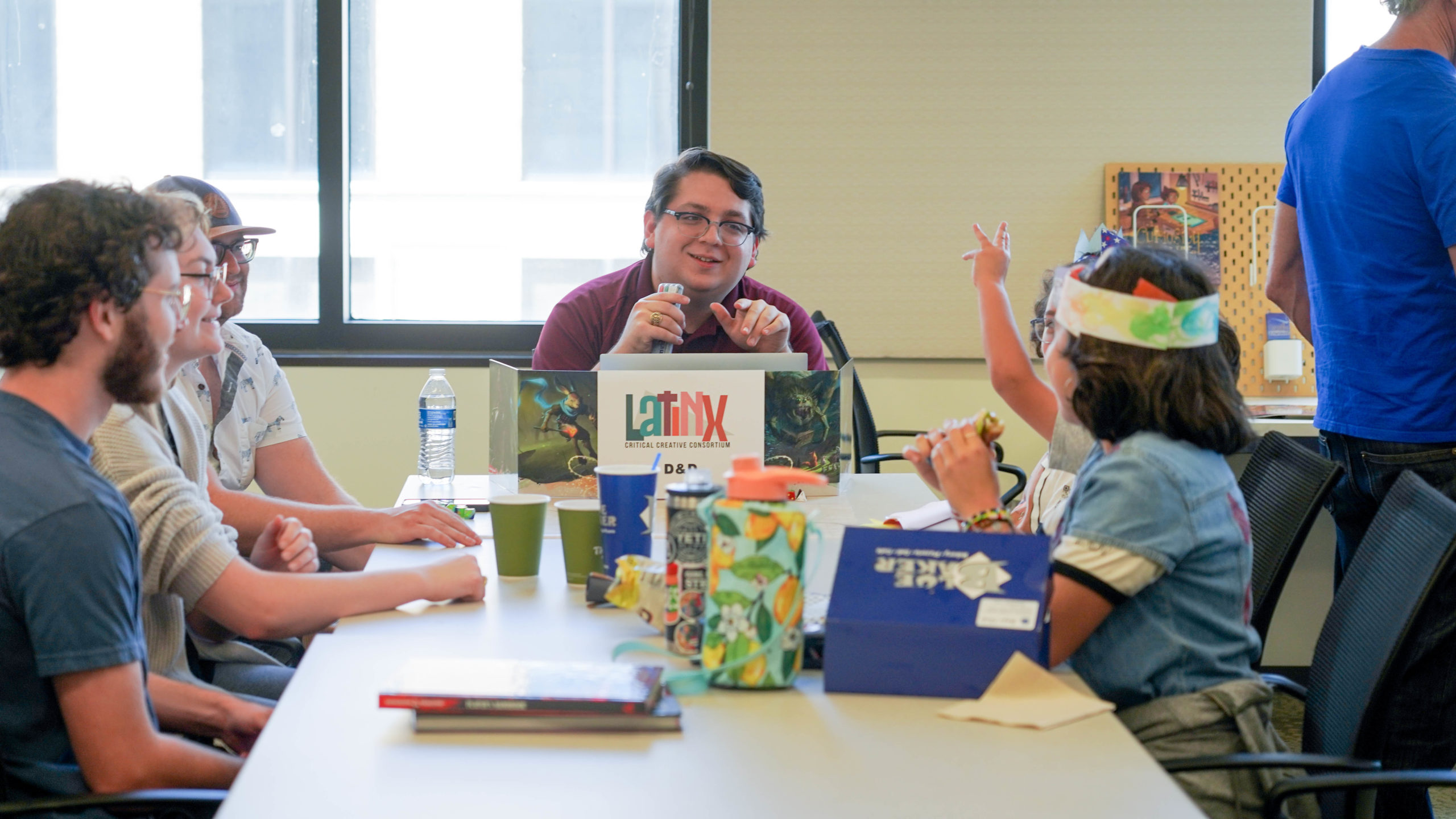
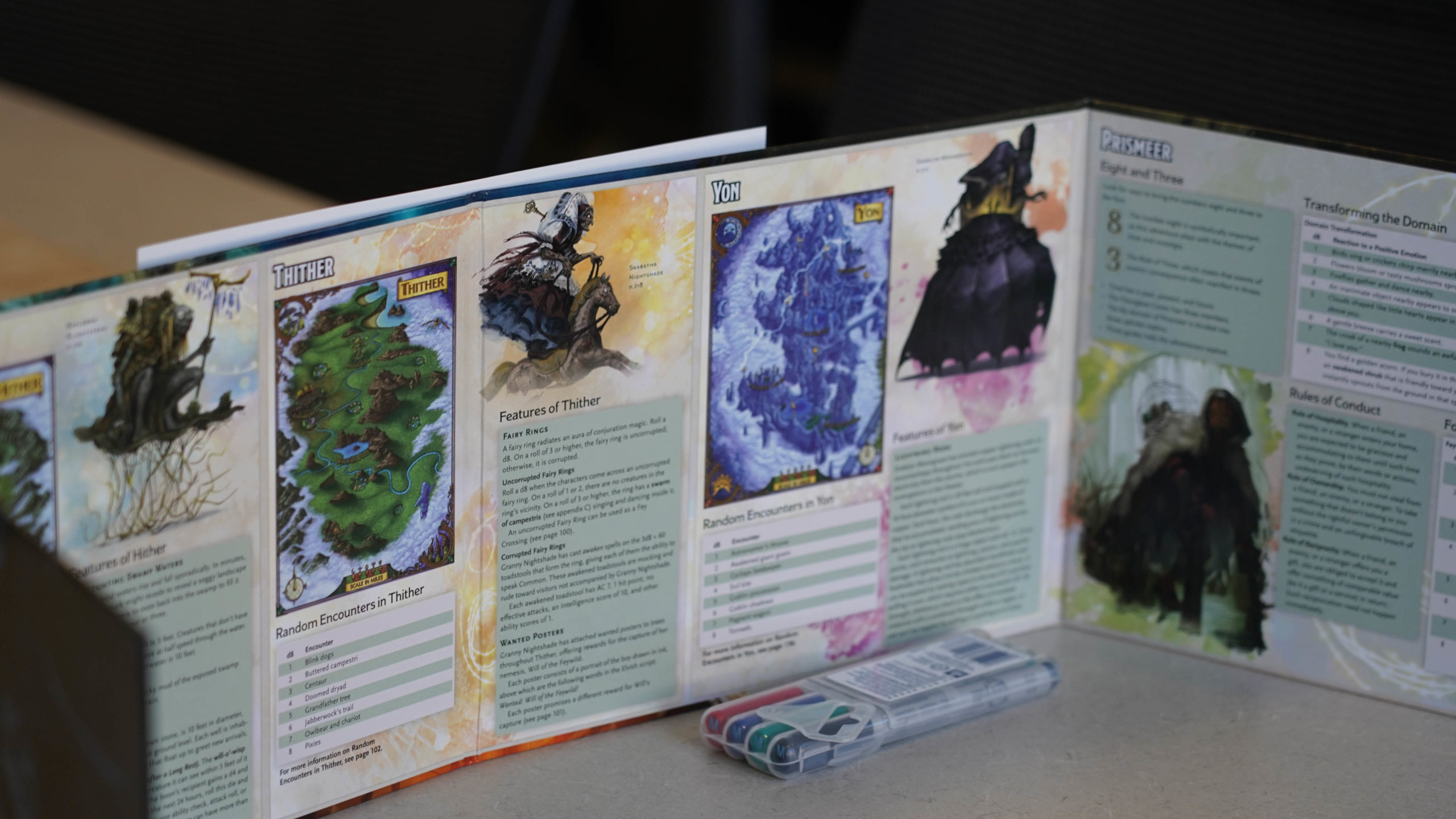
Nate Carr, a Masters’ graduate student offered to manage the Dungeons & Dragons campaign, and it was a huge success. While there was only time for one campaign, the range of participants was impressive and the laughter, voices, and characters generated were fun and inspiring.
Music Corner
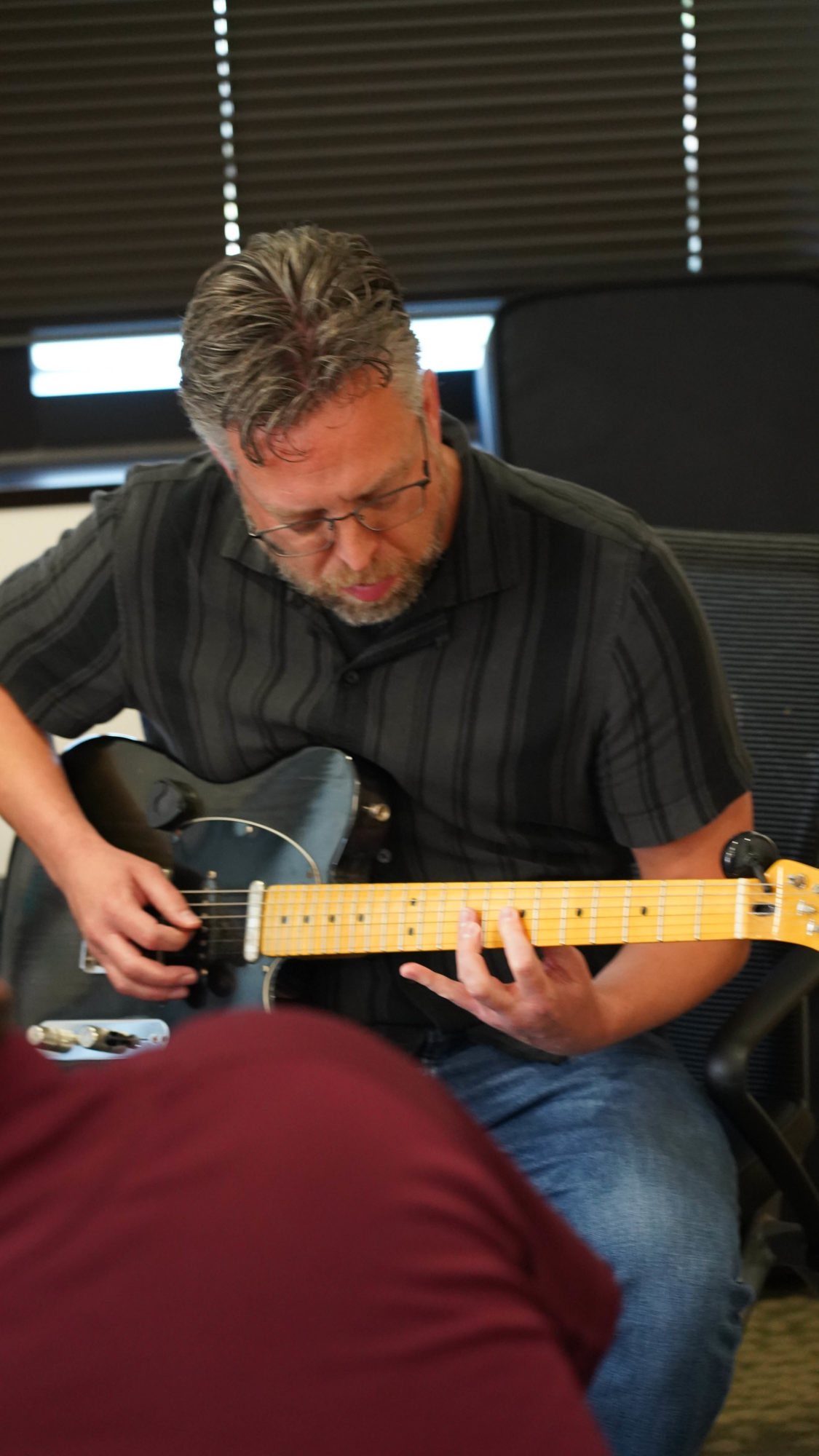
Probably should have been named the Guitar Corner, the Music Corner was probably the most random space at the conference where attendees could pick up guitars and proceed to wail on them until their heart was content. It was a very fun experience as you can see! A must for future conferences!
Podcasting Space
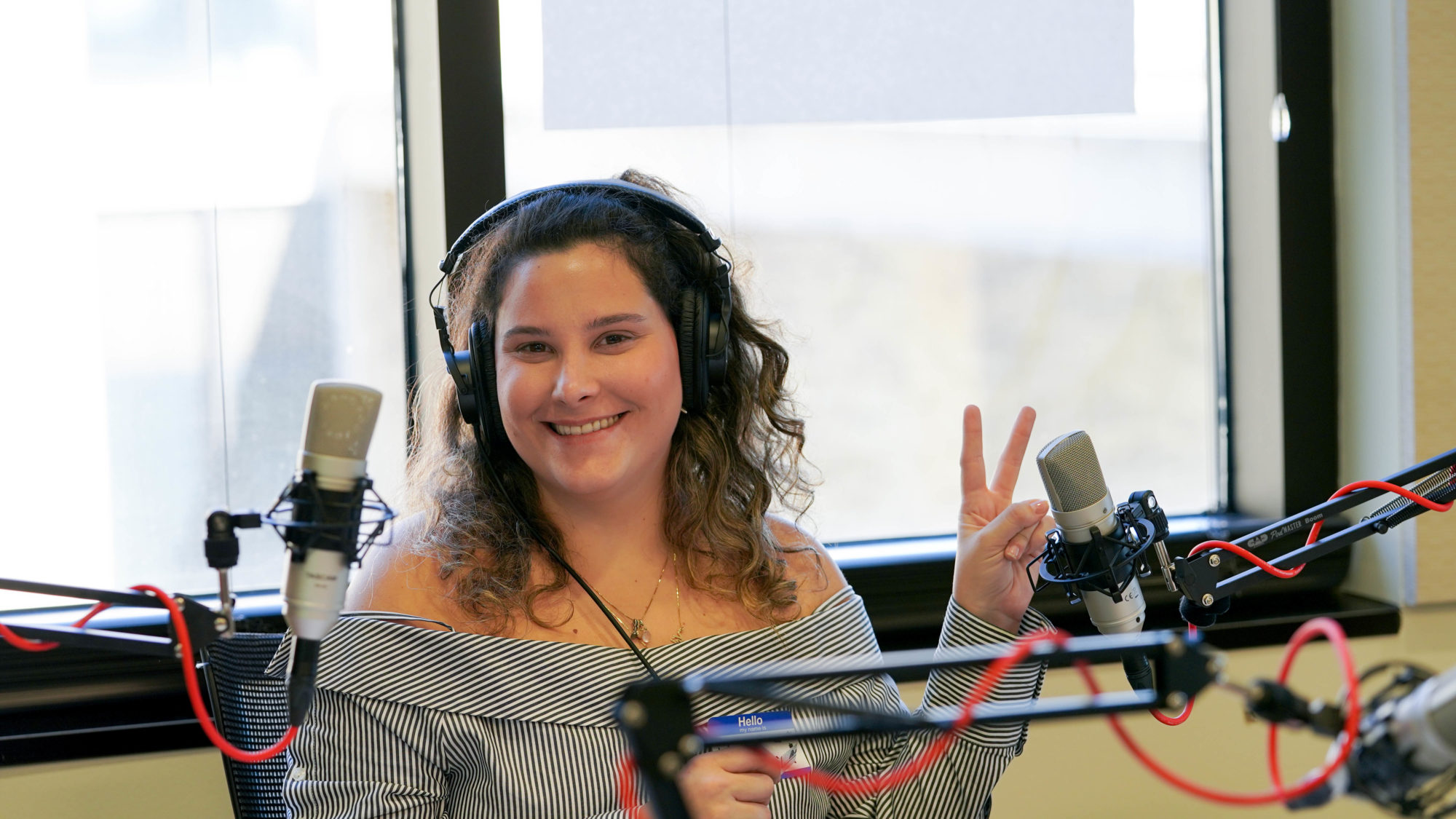
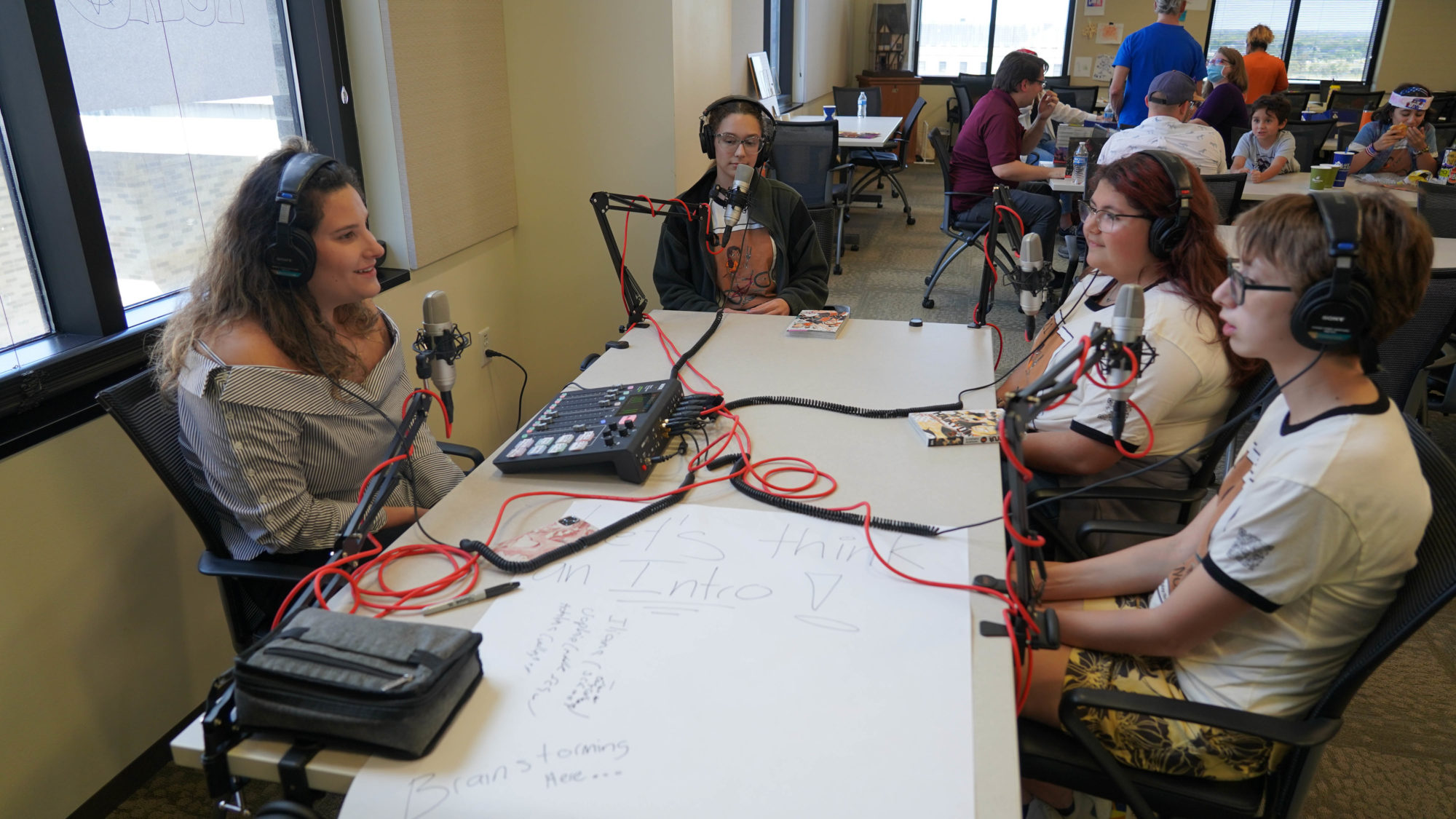
We had a podcasting space managed by Valentina Aduen, it definitely attracted the younger attendees which gave them hands on experience recording podcasts and getting familiar with the equipment. We also learned we should probably get some dynamic microphones for the setup as the condenser microphones pick up a lot of background noise.
Personal Testimonies
Feel free to share you own experiences and perspectives (Media & Gaming Lab members, presenters, attendees, etc. You can also submit photos or a video testimony rather than text, just let me know (joey jtlopez123@tamu.edu)
Take Aways
- Keep tracks, but possibly alternate sessions so groups are bigger, ie. have comics in the morning and then video gaming in the afternoon, etc.
- Work on having more local food options.
- The open session worked out well, but can be expanded in the future.
How to get involved
If you are interested in getting involved, feel free to contact joey phd at jtlopez123@tamu.edu.
